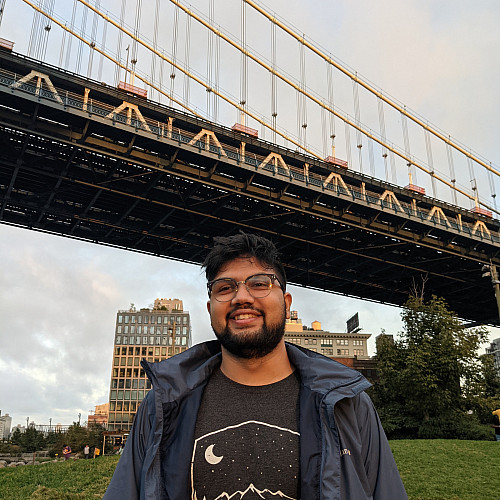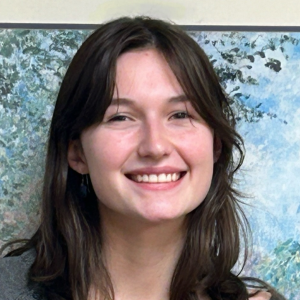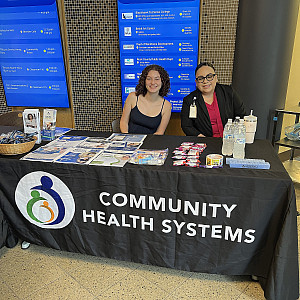Understanding Decision-Making
Aided by his studies of psychology, business economics, and computer science, Swaroop Poudel’22 conducts research to understand the underpinnings of decision-making. His goal is to promote both fair and socially beneficial decisions at an organizational level and healthier choices and pro-social behavior at an individual level.
Double major Swaroop Poudel’22 is having a busy fall semester.
In addition to his coursework, he’s applying to doctoral programs, finalizing a spring research proposal, compiling findings from another project for potential publication, and serving as an economics teaching assistant.
“I love the process of conducting research, and how studying something seemingly small can reveal information about larger processes. I’d like to specialize in either social psychology or industrial and organizational psychology, which is why I am applying to doctoral programs in psychology.” His spring semester proposal deals with the relationship between messaging, personality and charitable giving,
Swaroop has not limited himself to earning a major in psychology. He’s also majoring in business economics and minoring in computer science, and finding connections among all three.
An econ department course in game theory connected directly with his interest in decision-making in psychology, while his computer science background in data analysis and research equipped him to serve as a teaching assistant in the economics department. Psychology, in turn, has proven helpful to his economics studies.
Beloit College’s small classes and diverse campus attracted Swaroop from his home country of Nepal. The connections he’s made across disciplines and with faculty, students, and alumni that have helped him develop his research skills. Advice he received from older international students and alumni proved particularly helpful in his sophomore year when the COVID-19 pandemic eliminated in-person research opportunities.
“They encouraged me to reach out to labs I was interested in. That led me to Cornell University’s Little Thinkers Lab. I was able to volunteer remotely for the lab, helping with the research they were conducting on the development of stereotypes and how they influence daily life. My specific focuses were on stereotypes of wealth in children from different cultures, gender differences in STEM, and the influence of role models on persistence.”
Then, in his junior year, Swaroop received funding from the economics department to conduct research in the University of Michigan’s Social Minds Lab. Working with both undergraduates and graduate students, he researched cross-cultural differences in sharing behavior and group membership. The experience not only helped him understand what research in a lab entails, but gave him training in statistical methods and help with career development.

Looking back, Swaroop advises current and future Beloiters to act early.
“Make connections early. Get to know professors early. Ask about projects early. Faculty are going to be your best resource. They can help you make connections and help you do the research that interests you, as opposed to signing on to assist with someone else’s research. Doing research at a small college may take extra steps, but the process is worth it.”
Additionally, he advises students, particularly international students, to connect with more senior students and alumni. “They may be in a better position to help connect you to resources. A lot of research in the U.S. is funded by the federal government. Faculty will be very familiar with those opportunities, but perhaps less so with funding opportunities for non-citizens. Beloit alumni and students are more than willing to help. Take advantage of that.”
And take advantage of the assistance available in Career Works. “I’m grateful to Emily Sager for reading multiple iterations of the personal essay I’ll submit with my graduate school applications.”



